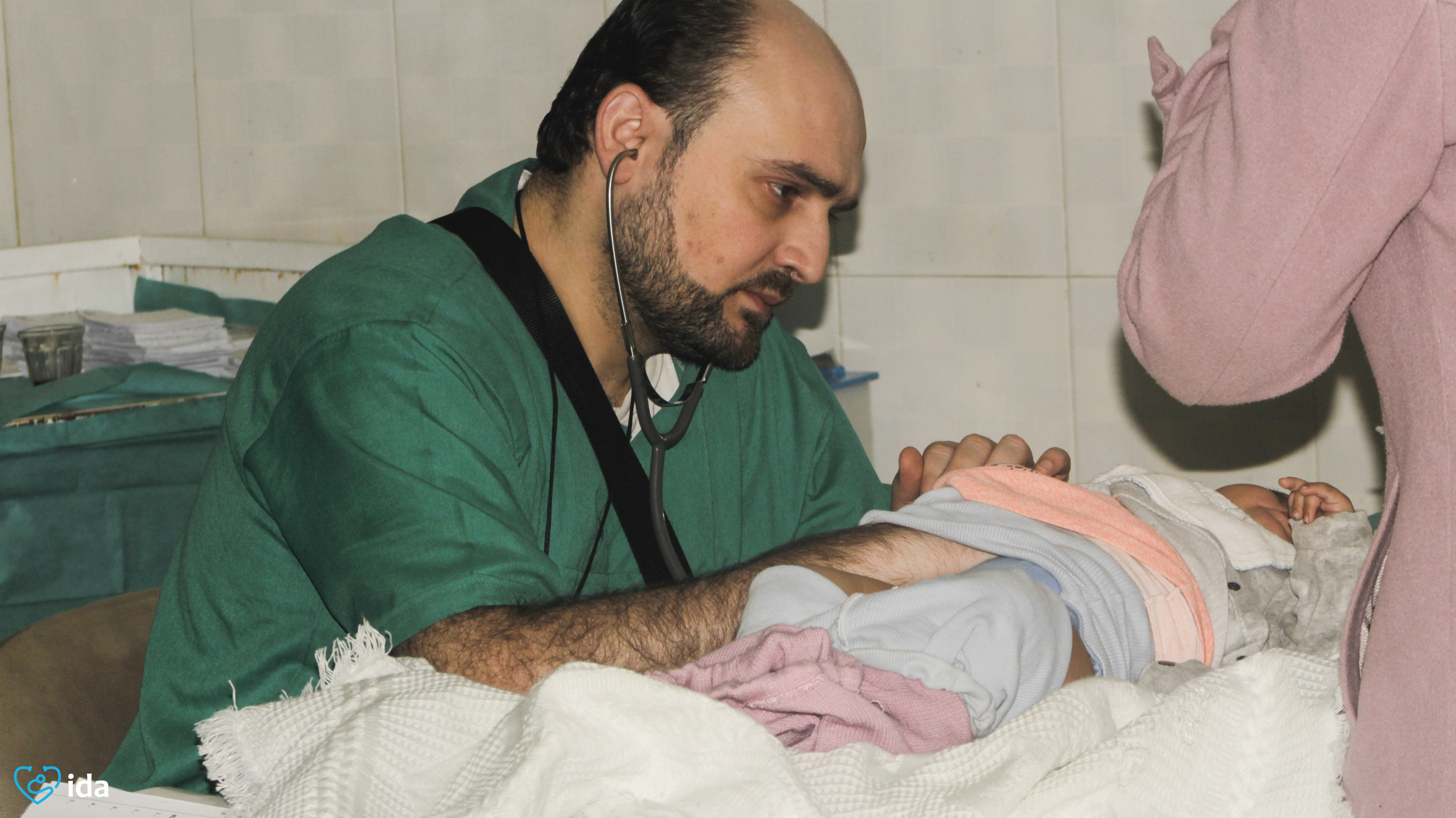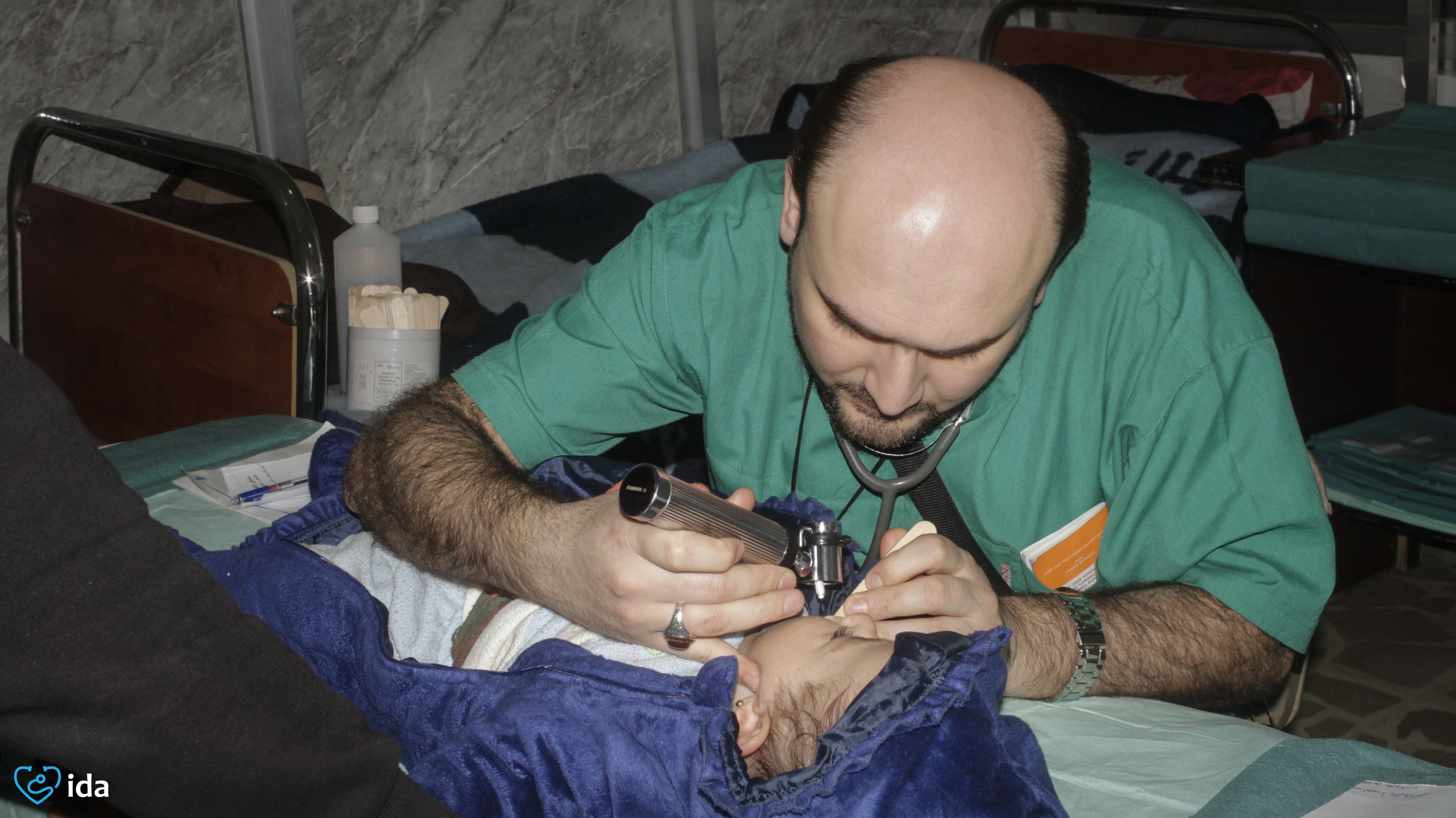These ongoing and systematic attacks are an explicit violation of humanitarian principles and international humanitarian law, which stress the protection of medical facilities and humanitarian workers against military operations and that categorically prohibit any kind of violence perpetrated upon them. These attacks by the Syrian government are crimes against humanity and we ask the international community to hold the perpetrators to account and put an end to the attacks immediately.’”
— Statement from Dr. Mahmoud Mustafa in Gaziantep, the Director of Independent Doctors Association
On Wednesday night one of Independent Doctors Association’s pediatric staff and a well-respected member of the medical community in Aleppo was killed in a direct airstrike to the Al Quds Hospital (also known as Bassel Aslan Hospital) in Al-Sukkari neighborhood. The attack took place at around 21:50 and destroyed the hospital, leaving approximately 30 people dead.
Dr. Muhammad Wassim Maaz, originally from Aleppo, was the Medical Director of IDA’s Pediatric Hospital in Aleppo (formerly known as Al-Hakeem Hospital). He also worked evening and overnight shifts in the Al Quds Hospital, where he was serving the night of the attack.
Dr. Muhammad Wassim Maaz tends to his patients in the Pediatric Hospital of Aleppo. Taken by Omar Etaki in February 2016.
Fighting in Aleppo began to escalate on April 22 raising the latest death toll to over 100 throughout Aleppo over just the past week. The recent intensification of attacks in Aleppo has left the February 27 cessation of hostilities agreement in pieces and brought on the near collapse of the UN-brokered peace talks in Geneva.
This latest rampage in Aleppo qualifies as one of the worst periods of renewed escalations in the war in Syria, and is consistent with the kind of strikes against civilian and medical infrastructure that was systematically undertaken by the Russian-backed Syrian government offensive in Northern Syria in February. In a targeted attack on April 25, five Civil Defense members in the town of Atareb in the Western countryside of Aleppo were also killed by air strikes on their local headquarters.
Yesterday’s airstrike in Aleppo may have destroyed a key facility but it also took away an uncountable number of lives through the loss of such a resourceful medical worker in a city so deprived of healthcare services. Dr. Maaz may not have been Aleppo’s last pediatrician killed, though one of just six pediatricians remaining in the city. He was however the highest trained pediatrician, and notably a certified trainer for activities preventing child malnutrition with a much-needed capacity to empower other doctors.
Interview with Dr. Hatem, Director of IDA’s Pediatric Hospital in Aleppo and colleague of Dr. Muhammad Wassim Maaz
What are the implications of the return of the bombing campaign in Aleppo on your work as doctors?
The return of the bombing over Aleppo city has led to the spread of fear and terror among civilians. An airstrike attack on Monday took place close to our Pediatric Hospital, 200 meters away. When the bombing intensifies over our area, the medical staff on the first floor of the hospital goes down to the ground floor carrying the babies’ incubators with them in order to protect them. During the last four days, I noticed that the bombing intensified between 10 am and 14:00 pm.
Do you feel that the escalated bombing in Aleppo is a prelude to an attempt to continue or finalise its besiegement?
The regime counts on bombing Aleppo city to cleanse as many people as possible before implementing a siege around it. This is the policy that has been applied for a year in this city that has a population of around 300,000. Any siege of Aleppo will lead to shortages in our emergency and non-emergency supplies due to already insufficient reserves. It will affect mostly the patients with chronic diseases, cancer, and kidney problems because they need constant treatment. In addition to this, the siege will lead to the spread of leishmaniosis (skin disease) and epidemics such as scabies, lice, measles, and Hepatitis A.
What kind of medical problems do most of the patients coming to the Pediatric Hospital suffer from when the bombing increases in Aleppo?
Since we are a specialized Pediatric Hospital, we receive many cases of asthma – children who have breathing difficulties that lead to suffocation due to the emission of smells after each bombing, such as the dust and powder. We received 15 cases of children injured during the bombing. They were surgical injuries ranging from minor to severe including amputations, who were directly referred to surgical hospitals.
Tell us about your colleague Dr. Muhammad Wassim Maaz.
He was a pediatrician, originally from Aleppo. Every day we used to spend six hours together. He was friendly, kind, with always a smile on his face. He used to joke a lot with me and the whole staff. He really was the loveliest doctor in our hospital. He was preparing to come to visit his family in Turkey the week after my return from Istanbul to Aleppo. He hasn’t seen his family for four months, but he used to always say, ‘’I will stay in Aleppo.’’ He was a brave man who refused to leave Aleppo under any circumstance.
Now, without any form of defense for doctors, we will keep losing doctors.

View this statement on the Syria Campaign.

